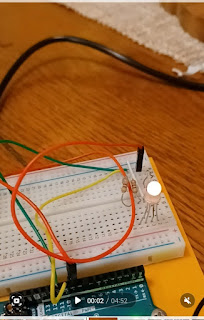Web 2.0 and My Digital Footprint
This weekend I conducted a "Vanity Search" to reflect on my digital footprint and use of Web 2.0 technologies. Although it is probably a tad paranoid of me, I have always been reluctant to use my last name in any Social Media accounts (including Google) which I have set up in the past. I am more relaxed about it now but when I was younger, I wanted a clear separation between my job and my personal life (partly because the scrutiny educators are always under) and replaced my surname with a name of my own choosing for my Social Media "handle."
Looking back on my footprint I have been subjectively scarce online. I have an Instagram account (which did not show up), a deleted Twitter and a deleted Facebook. Ironically the websites that showed up the most were comments I had made on others Youtube channels, especially because a friend of mine tried making a Youtube channel a few years ago and I was trying to support her by commenting on her every video. I also saw a few Google reviews I had left for local business (I love to leave positive reviews for local businesses 😎) a college writing contest I was featured in, and obituary to a friend.
While my search results were thankfully not alarming or problematic, I also think I have been overly cautious in the past and have missed some opportunities for connection with people of similar interests and connections with broader communities. My goal for this blog is to connect with and learn from other educators and instructional technologists and participate in a platform where I can shed any negative reservations I have about Social Media and its downsides and use this platform for my own and others growth and continued learning.
In his article Web 2.0: A New Wave of Innovation for Teaching and Learning," Bryan Alexander makes a compelling case that "If social writing platforms support people creating and editing each other's content, a different group of Web 2.0 services explores that content from the outside, as it were. Blogging has become, in many ways, the signature item of social software, being a form of digital writing that has grown rapidly into an influential force in many venues, both on-and off-line." I intend to take advantage of the influential force of blogging and learn from others as I, myself, contribute.



Comments
Post a Comment